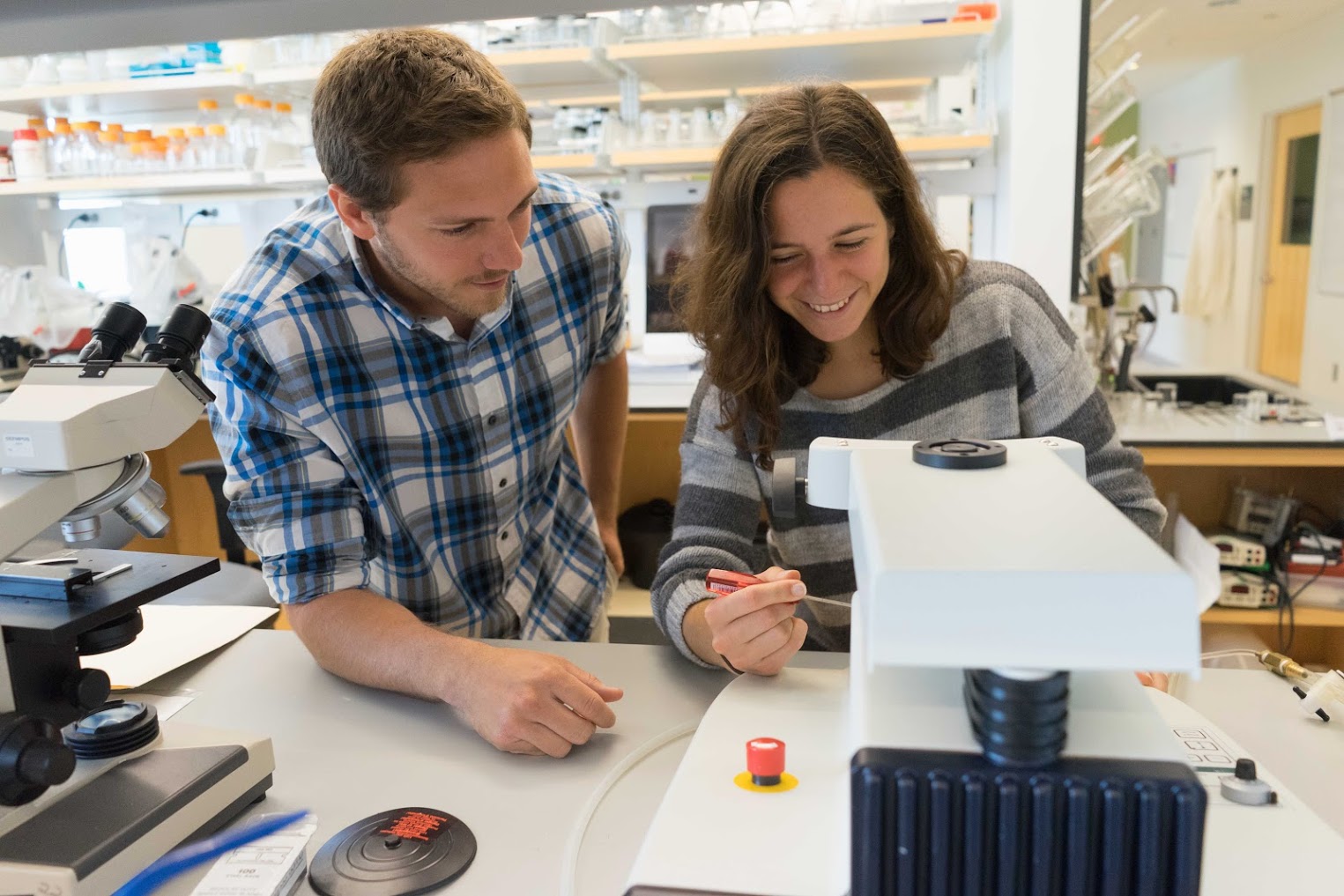
Overview
The Department of Biology offers majors in biology and in biotechnology, as well as a minor in biology and an accelerated dual degree program (B.S. + M.S.) in Forest Biology.
Within the biology major, students may choose a concentration, if desired, in Ecology and Environmental Biology, Microbiology, or Neuroscience.
For current major requirements, please refer to the official JMU undergraduate catalog (click on "Majors" and "Biology" or Biotechnology").
The Biology Major
The Biology major is flexible and can be tailored to the interests and needs of the individual student. The program comprises a four-semester core and the opportunity to tailor your upper division curriculum. The diverse selection of upper division courses includes:
|
|
Regardless of your speciality, all Biology B.A. or B.S. graduates will be able to:
- Discriminate between association and causation, and identify the types of evidence used to establish causation.
- Formulate a hypothesis and identify relevant variables necessary to test that hypothesis.
- Design and execute experiments to test hypothesis.
- Use various methods to effectively obtain analyzable data.
- Organize data in a manner consistent with publications within the discipline.
- Effectively determine trends in data sets, effectively state conclusions relating to the experimental design and data collection and determine implications to the field of study.
- Evaluate a statement, hypothesis, or claim using different kinds of evidence, including qualitative and quantitative observations and experimental results.
- Locate and use reliable sources of scientific information.
- Critically evaluate a paper from the primary scientific literature.
- Use effective professional communication in posters.
- Use effective professional communication in lab reports.
- Use effective professional communication in oral reports.
- Use mathematics, modeling and simulation to understand and analyze biological phenomena.
- Synthesize information and concepts, and apply that knowledge to new situations.
Our Biology B.A./B.S. graduates also gain experience working in the field and controlled laboratory environments, and have exposure to a variety of biology career fields.
For a full description of the major and current courses offered, see the catalog.
Other Major Options
The department of biology also offers a four year, interdisciplinary B.S. degree program for a major in biotechnology in cooperation with the department of integrated science and technology and the department of chemistry and biochemistry.
Our Dual Degree in Forest Biology program makes it possible for students to earn a B.S. degree in biology from James Madison University and a Master of Forestry degree from Virginia Tech in five years.
